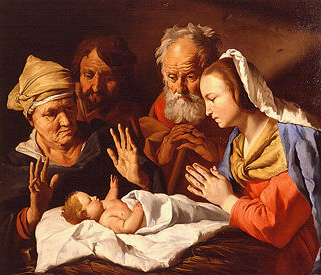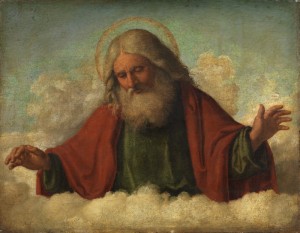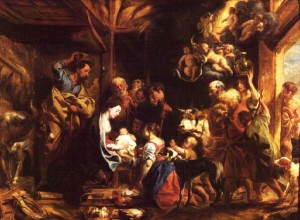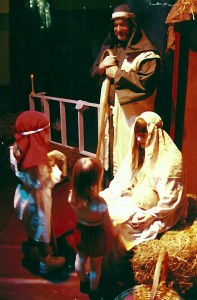Recently, I read the news online to catch up on world events; instantly I wished I had not. Have you had a similar experience? You want to be well informed, but when you turn on the television or surf the ‘net’ you find yourself awash in stories of corruption, political rancor, and human tragedy. In short order, you may find yourself either feeling numb to human suffering or depressed and resigned to the sorry state of the world.
Whatever commands our emotional and mental attention profoundly shapes our understanding and experience of life. We are what we think as much as what we eat. Our thoughts affect how we understand the world and ourselves and influence how we interact with others. That is why it is vitally important that we each be aware of our thought process and its personal, social, and spiritual implications.
This insight is not new. Two thousand years ago the apostle Paul addressed the issue when he wrote the following advice to members of the congregation in Philippi, a city named after the father of Alexander the Great.
Finally, beloved, whatever is true, whatever is honorable, whatever is just, whatever is pure, whatever is pleasing, whatever is commendable, if there is any excellence and if there is anything worthy of praise, think about these things. Keep on doing the things that you have learned and received and heard and seen in me, and the God of peace will be with you.
(Paul’s letter to the Philippians 4:8-9)
With these words, Paul urges followers of Jesus to take responsibility for their thoughts as well
as their words and actions. He understood that the vitality of the congregation at Philippi, the
effectiveness of their Christian witness, and the capacity for individual spiritual growth were all
either nurtured or hampered by whatever occupied members’ minds. The same holds true for us at East Hills Moravian Church.
Here’s the challenge:
- Become aware of what you think and take responsibility for your thought patterns.
- In your own life and in our life together as a community of faith, what is true, honorable,
just, pure, pleasing, commendable, or excellent? - If you feel comfortable doing so, why not share your awareness of these blessings with someone else?
- Make a commitment not to give power to negativity. Do not invest yourself emotionally or
mentally in negative thoughts. Allow your own negative thoughts to pass through your mind quickly without judgment or comment. (When you try to resist negative thoughts actively, you may find that they get “stuck” – that is you obsess.) Extend the same grace towards others who express negative opinions. Hear them out, but neither affirm their negativity nor engage them in a struggle over it.
– Pastor Derek French






 In an age before supermarkets and seed catalogs the harvest season could be an anxious time of year. The quantity and quality of the
In an age before supermarkets and seed catalogs the harvest season could be an anxious time of year. The quantity and quality of the  Take your children on an exciting journey back in time to the streets of biblical Bethlehem on
Take your children on an exciting journey back in time to the streets of biblical Bethlehem on